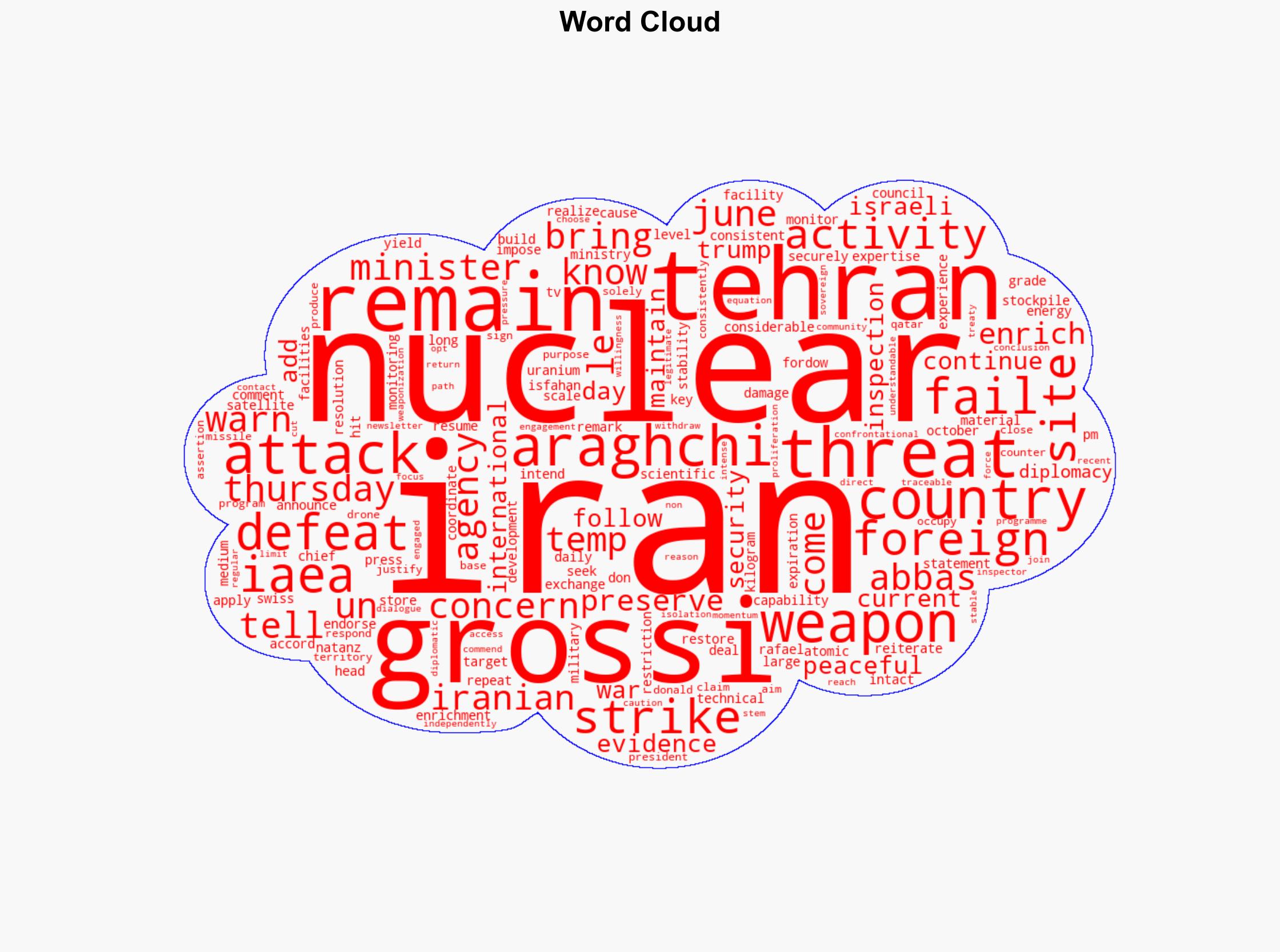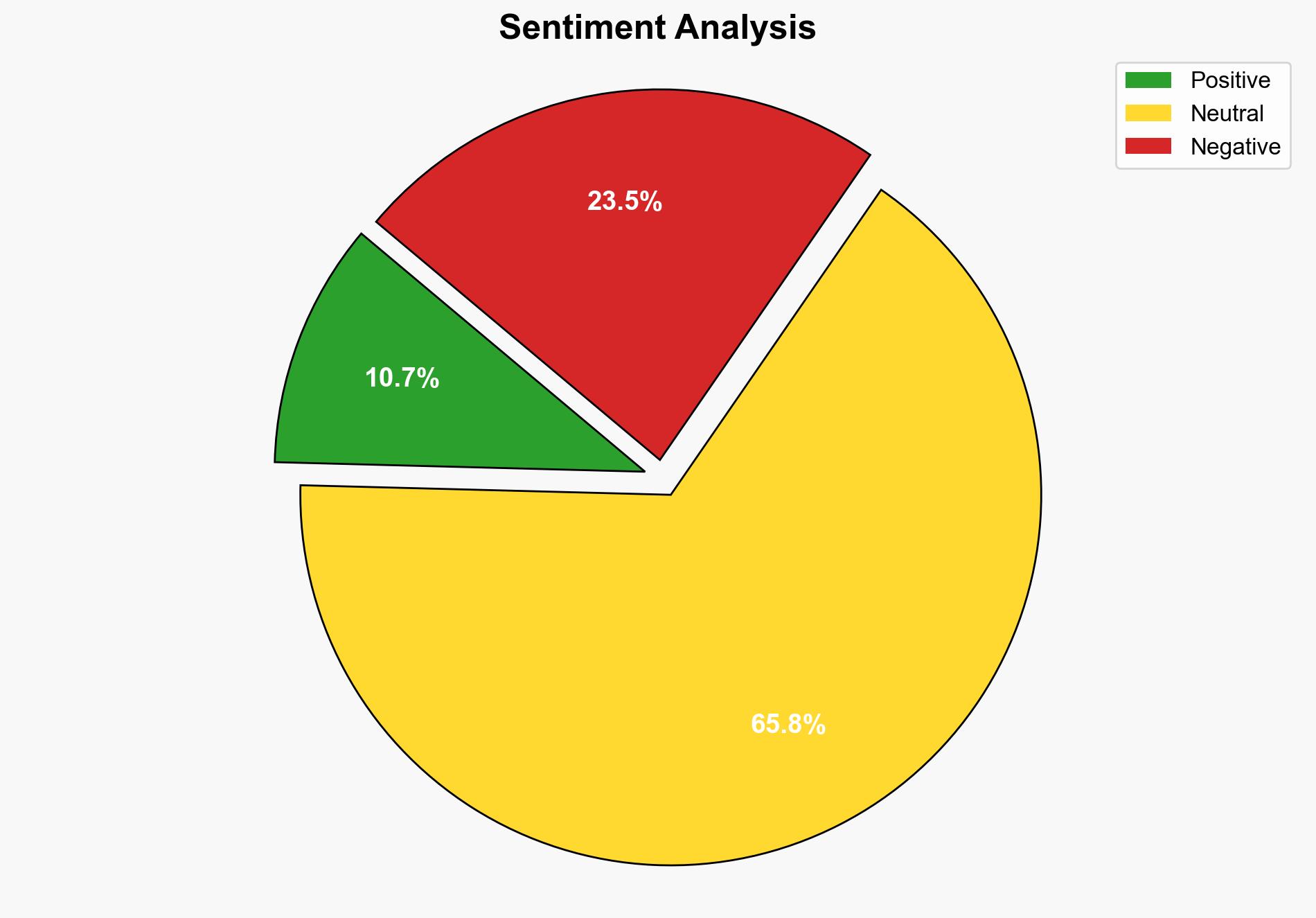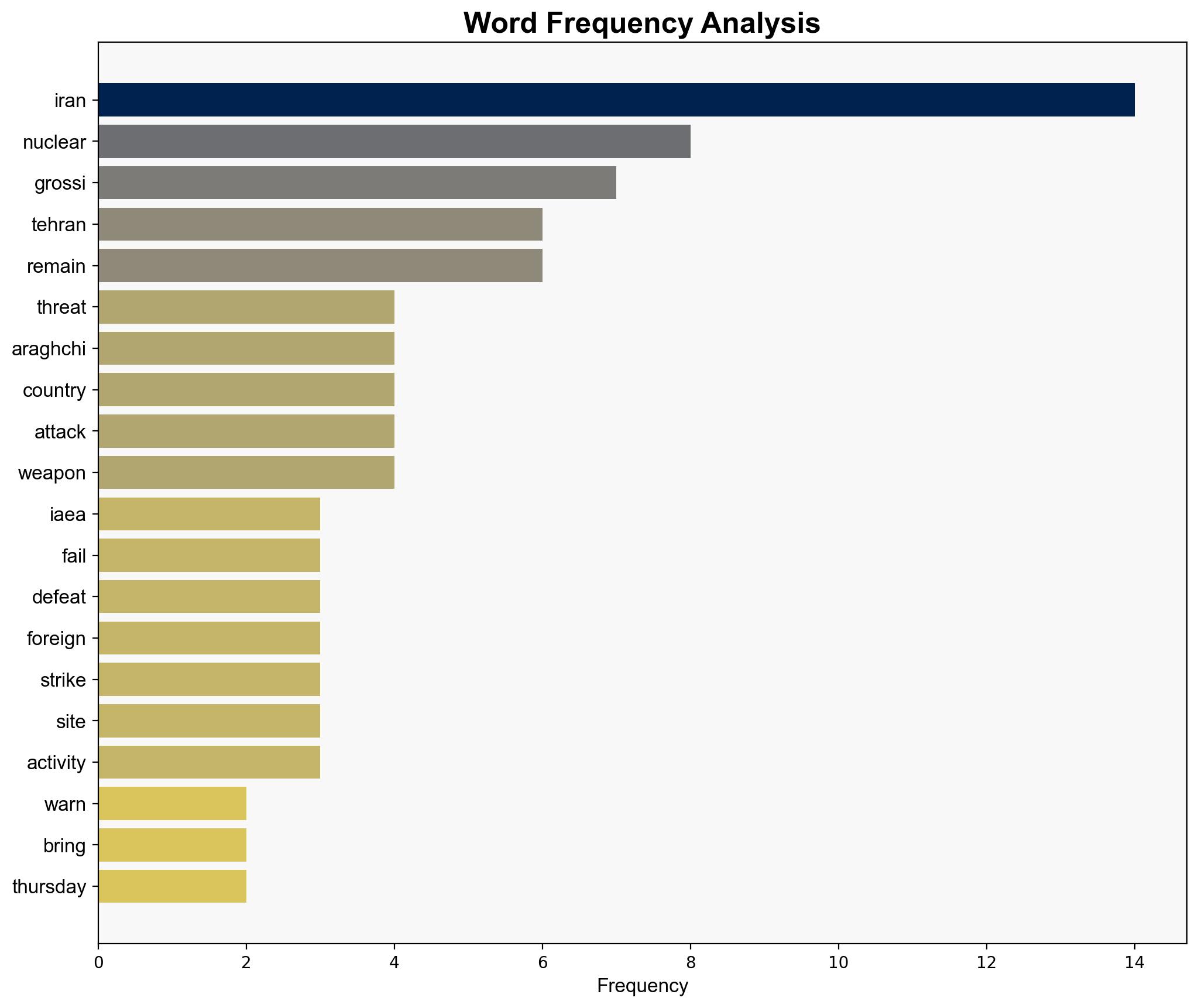Iran warns IAEA chief Failed threats will bring nothing but another defeat – Globalsecurity.org
Published on: 2025-10-24
Intelligence Report: Iran warns IAEA chief Failed threats will bring nothing but another defeat – Globalsecurity.org
1. BLUF (Bottom Line Up Front)
The most supported hypothesis is that Iran’s rhetoric is primarily aimed at reinforcing its negotiating position rather than signaling an immediate escalation. Confidence in this assessment is moderate, given the complexity of regional dynamics and historical precedents. Recommended action includes maintaining diplomatic engagement while preparing contingency plans for potential escalation.
2. Competing Hypotheses
1. **Hypothesis A**: Iran’s warnings are primarily rhetorical, intended to strengthen its position in ongoing negotiations and deter further international pressure.
– **Supporting Evidence**: Iran’s consistent emphasis on diplomacy, its historical pattern of using strong rhetoric in negotiations, and the preservation of its nuclear capabilities for peaceful purposes.
2. **Hypothesis B**: Iran’s warnings indicate a genuine intent to escalate tensions, potentially leading to military confrontation if provoked further.
– **Supporting Evidence**: Recent attacks on Iranian facilities, Iran’s missile and drone response, and the expiration of UN Security Council restrictions.
3. Key Assumptions and Red Flags
– **Assumptions**: It is assumed that Iran values diplomatic engagement and that its nuclear program remains peaceful. There is also an assumption that international inspections are accurate and comprehensive.
– **Red Flags**: Potential bias in interpreting Iran’s intentions, given historical distrust. The lack of independent verification of Iran’s nuclear activities and the potential for misinterpretation of rhetoric as intent.
4. Implications and Strategic Risks
– **Geopolitical Risks**: Increased tensions could destabilize the region, impacting global oil markets and international security.
– **Economic Risks**: Potential sanctions or military conflict could disrupt regional trade and energy supplies.
– **Cyber Risks**: Escalation could lead to cyber-attacks on critical infrastructure.
– **Psychological Risks**: Heightened tensions may lead to increased domestic unrest within Iran and among its regional allies.
5. Recommendations and Outlook
- Continue diplomatic efforts to engage Iran, emphasizing the benefits of compliance and cooperation.
- Enhance intelligence gathering to monitor Iran’s nuclear activities and regional military movements.
- Prepare contingency plans for potential military escalation, including regional alliances and defense readiness.
- Scenario Projections:
- **Best Case**: Iran remains engaged in diplomacy, leading to a renewed agreement and reduced tensions.
- **Worst Case**: Military confrontation occurs, destabilizing the region and impacting global security.
- **Most Likely**: Continued diplomatic posturing with periodic escalations, but no immediate conflict.
6. Key Individuals and Entities
– Abbas Araghchi
– Rafael Grossi
– Donald Trump
7. Thematic Tags
national security threats, cybersecurity, counter-terrorism, regional focus





